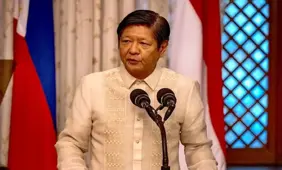Singapore Tightens Gambling Reporting Guidelines to Combat Money Laundering
Singapore is tightening its gambling reporting guidelines to bolster efforts against money laundering within its casino industry. This move comes as the city-state’s Gambling Regulatory Authority (GRA) announced significant amendments aimed at enhancing customer due diligence and aligning with international standards. The latest measure will reduce the cash deposit threshold that triggers customer due diligence checks by 20%, aiming to strengthen the financial transparency of its prominent casino duopoly.

The casino duopoly in Singapore is comprised of two major players: Resorts World Sentosa, operated by Genting Singapore Ltd, and Marina Bay Sands, managed by a subsidiary of Las Vegas Sands Corp. These two integrated resorts have been central to Singapore’s gaming sector, contributing substantially to its economy while also posing challenges in terms of regulatory oversight and financial compliance. The new guidelines are part of Singapore’s broader strategy to mitigate the risks associated with money laundering and ensure a safer gambling environment.
Related: Singapore Casinos not Harmed by Recent Money Laundering ScandalUnder the revised regulations, the cash deposit amount that will necessitate customer due diligence checks will be lowered from SGD5,000 (US$3,685.50) to SGD4,000 (US$2,950). This change, reported by Singapore-based news outlet CNA on Monday, marks a proactive step by the GRA to tighten control over financial transactions within the casinos. By reducing the threshold, the GRA aims to capture a larger volume of transactions under scrutiny, thereby reducing the risk of illicit activities slipping through the cracks.
Both Resorts World Sentosa and Marina Bay Sands are expected to comply with the new regulations, adapting their internal processes to meet the updated requirements. This includes implementing more rigorous customer identification and verification procedures for transactions that meet or exceed the SGD4,000 threshold.
More Regulation News
Complying with International Standards
The legislative amendments set forth by the GRA are designed to align Singapore’s gambling industry with the standards set by the Financial Action Task Force (FATF). The FATF is an international body that develops and promotes policies to protect the global financial system against money laundering, terrorist financing and other related threats.
The move to tighten gambling reporting guidelines reflects Singapore’s ongoing efforts to enhance regulatory measures in response to evolving global standards the FATF establishes. The reduction in the customer due diligence threshold signifies a more stringent approach to monitoring and reporting financial transactions, aiming to deter potential money laundering activities. This adjustment ensures that even smaller transactions are subject to thorough checks, making it more difficult for illicit funds to be funneled through the casino industry.
The GRA’s latest initiative reflects a commitment to maintaining a transparent and secure gambling environment. It sends a clear message that financial compliance and the fight against money laundering are top priorities for Singapore.
RELATED TOPICS: Regulation
Most Read
Must Read
 Interviews
Interviews
Sweepstakes Casinos: Thriving in an Ever-Changing Industry – Interview with Attorney Stephen C. Piepgrass
Feb 17, 2025 Interviews
Interviews








Review this New Post
Leave a Comment
User Comments
Comments for Singapore Tightens Gambling Reporting Guidelines to Combat Money Laundering